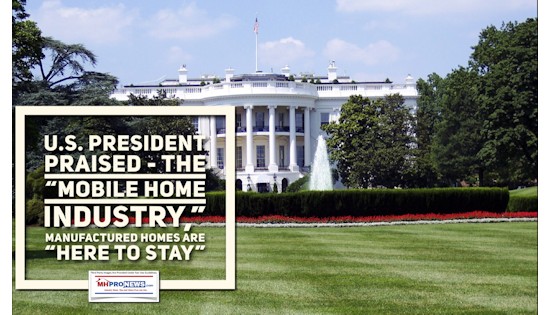
“You are entrepreneurs in the best tradition of the free enterprise system.”
~ The President of the United States to the MH Industry
The U.S. President began his talk with these words, “There are problems in the economy and in the mobile home industry. I am not so naïve as to deny that. I am in the business of looking for problems – and solutions. I am a problem solver and an optimist. I am optimistic about the future of the economy and the future of the mobile home industry. My optimism stems from the belief that our problems – and that is the first step toward solving them. To recognize problems is constructive. To become obsessed with them is destructive.”
Imagine how motivated about a thousand manufactured home (MH) industry professionals were to hear what HUD Secretary Ben Carson had to say at MHI’s last planned meeting in Las Vegas earlier this year.
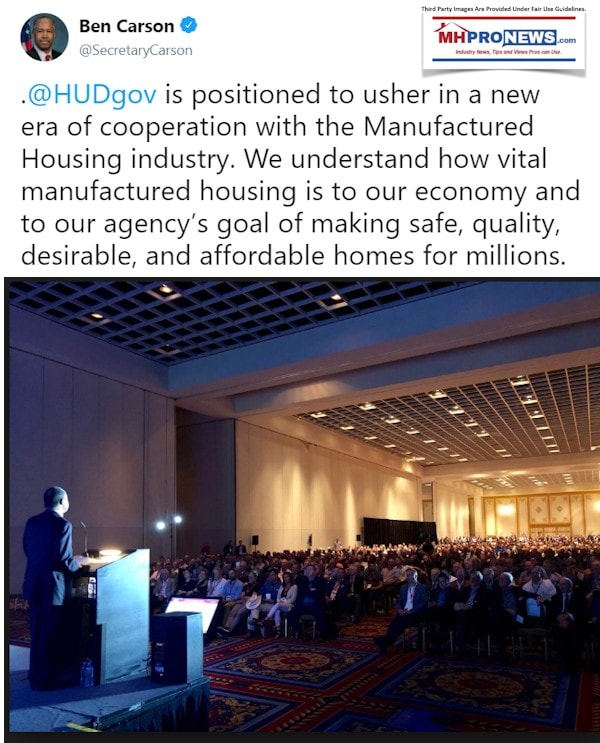
Then picture a time in the MH Industry when the President of the United States was happy to speak to the industry, and the industry was happy to hear in person from the Chief Executive of the U.S.
Rearview mirrors are not as important as the windshield, but they are necessary for safety, insight, learning, and growth. Driving would be far more dangerous without side-and-rear-view mirrors. The same principle is true for investing, to operate or expand a businesses, and for savvy politicos. Everyone that buys a business or a property does due diligence to see what the past performance looked like. Its hard to find a business that doesn’t check the background – the history – of a job applicant. History matters.
The opening words above, and what follows below, are from then-President Gerald R. Ford, in a speech given to the “Mobile Home Manufacturers Association” dated March 22, 1973. The original notes are from the Ford Presidential Library. All of those notes are found at the end of this report as a download.
“The best way to solve problems is to concentrate on our strengths. And if you look at the economy and at your own industry you see many strengths, many reasons for confidence,” said Ford’s notes, which include hand-written revisions.
Ford’s speech notes go through a significant amount of economic data, woven between his comments about the blossoming then pre-HUD Code mobile home industry.
Then President Ford’s speech positions the next section of praise following part of his address that focused on balancing the budget.
Then, as now, there is a need to control federal housing costs. The common-sense solution, then and now, is to let as much of that be done by private enterprise. Federal policy should be used to support solutions, rather than be an obstacle for private industry, in this case, the factory-built home industry.
“I have noted with great interest the bill introduced by Lou Frey of Florida…,” Ford said. That bill would eventually become the National Manufactured Housing Construction and Safety Standards Act of 1974. “I am sure that each and every one of you shares Lou Frey’s concerns and respect his motivation,” Ford stated.
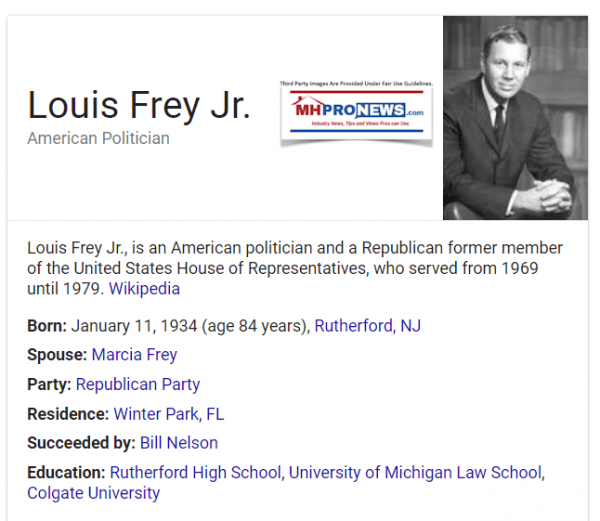
“What’s the outlook for the mobile home industry? It can only be described as bright. My information is that production now is running at an annual rate of nearly 700,000—and that is a fantastic figure for what really is a still a very young industry.” It should be noted that mobile home shipments never broke 600,000 units in a year, but the way that then-President Ford described it is akin to what today would be called the “Seasonally Adjusted Annual Rate” or SAAR, used in conventional housing as well as with HUD Code manufactured homes. That SAAR may indeed, during that time of year, have been at a near 700,000 annual rate.
It is important to note again why the Daily Business News recently spotlighted the story of Rollohome. In short order, that firm went from start-up to 60,000 new homes shipped in just 2 years. If that was achievable then, surely it can be done with our greater technology today? For more on that, readers can circle back later to the linked report, below.
Ford on MH
Ford pointed to the VA program, and how it was modified to support financing of manufactured homes for veterans.
Then, it was Vietnam, but more recently, Afghanistan and Iraq are among the places that millions of veterans have served.
Ford’s logic of supporting the factory-built home industry applies today, as it did then. It is one of several reasons that MHProNews has supported editorially common-sense, sustainable tweaks to FHA, VA, USDA (Rural Housing) and the lending programs that GSEs are supposed to be providing via their Congressionally mandated Duty to Serve (DTS) manufactured housing. One such related report is linked below, and can be read later for more insights.
“As you know, Congress in 1970 approved a law letting the Veterans Administration guarantee loans on mobile homes, as well as on the lots to place them on,” Ford’s speech-notes said.
Ford apologized for the “red tape connected with…” the VA program, a reminder that then and now, legislation is the start of a process, not the end. “The VA mobile home program has fallen far short of its goals. But it is now picking up. In recent weeks VA officials have conferred with mobile home manufacturers and dealers and with money lenders. They want to make the program go,” Ford explained.
“But VA officials are doing everything they can to promote the mobile home loan guarantee program, and it is beginning to accelerate,’ said Ford, adding “Of the 5,460 mobile home loans guaranteed by the VA last year, 4,178 were to post-Korean vets.”
“You are entrepreneurs in the best tradition of the free enterprise system.”
“I say the future of your industry is bright because you’ve got a lot going for you. Mobile homes are the only low cost new homes available,” then President Ford said. “The cost of producing stick-built housing has risen dramatically. At the same time, with your assembly line methods, you are doing something to lick high housing costs—and it is the mobile home purchaser who benefits.”
That same point applies then and now. It is once more worth noting that President Donald J. Trump worked an example of factory-home building into a speech featured by the Daily Business News, at the link below, which can be referenced later for more insights.
“I am not here to promote the sale of mobile homes,” Ford said, so that he didn’t sound like he was a pitch-man for the industry.
“But there is no question that the mobile home industry holds revolutionary potential for future advancement in the field of housing. Mobile homes have become a major segment of the nation’s housing supply. They are here to stay,” said Ford to finish is speech.
Tony Takeaways
The word “tony” can be a word or a name. As a word, tony can mean “elegant, stylish, fashionable.” It’s also the name of your award-winning manufactured home industry veteran, writer, industry consultant, and publisher.
There are many reasons this speech of President Gerald R. Ford still matters today.
President Ford was arguably correct on several points, which applied then and now. They include, but aren’t limited to:
- Presidents Nixon and Ford are among those who specifically praised the value of the mobile home industry – which is what the industry was, prior to the passage of the National Manufactured Housing Construction and Safety Standards – in solving the nation’s affordable housing needs.
- HUD Secretary Ben Carson, Vice President Mike Pence, and President Donald J. Trump have all praised either manufactured homes specifically, and/or factory-built homes in general. Danny Ghorbani, and MHARR President and CEO Mark Weiss, JD, have both cited the opportunity the industry has with this administration (see the video, below.)
- Ford was correct in saying that problems must be identified and understood, before they can be tackled and resolved. Editorially, MHProNews has advocated a pragmatic, reality-based approach to problem solving. The industry must separate the unhealthy chaff from the fine wheat.
- Then and now, federal access to financing options that level the playing field were important.
- More affordable manufactured home owners would mean more Americans who aren’t renting or getting housing subsidies.
- Millions of more manufactured home owners would mean millions of more Americans building equity and personal wealth.
- Unlike rentals, a manufactured home loan can over time be paid off. Once a home is mortgage-free, maintenance, insurance, utilities, and taxes are all that remains, so that’s as inexpensive as modern living costs can possible get.
- Building more manufactured homes would mean more good jobs.
- From the federal budget perspective, millions of more manufactured homes would mean fewer people depending taxpayer subsidized housing, and/or other programs.
- Ford proved to be correct about the “revolutionary potential for future advancement in the field of housing” about the evolution of the industry from the mobile home era to the modern manufactured homes today. Factory-home-building made sense then, and now.
- Enforcement of existing laws are a key, including the enhanced preemption provided by the Manufactured Housing Improvement Act of 2000.
- Logically, enforcing the laws linked above would yield some $2 trillion in additional Gross Domestic Product, according to the university researchers.
There’s more, of course, but the points are clear.
President Ford recognized that the MH industry is necessary. It is currently underperforming, as the chart below reflects.
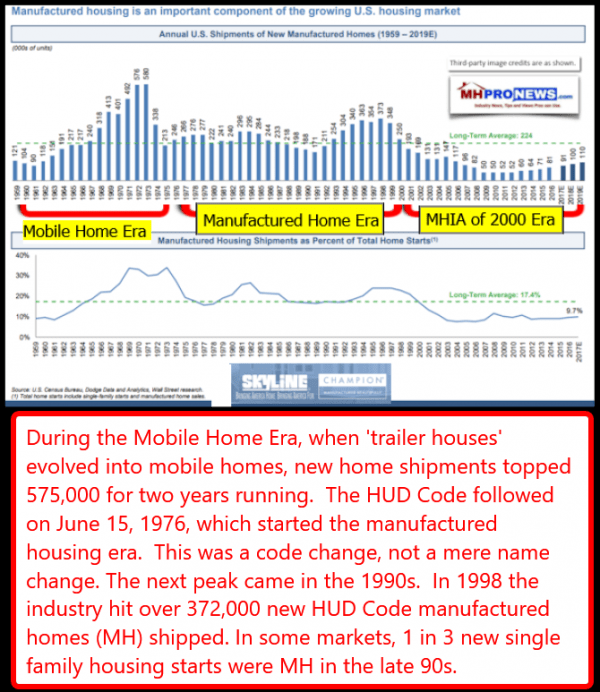
The industry’s professionals and investors must grasp the tremendous opportunities, vs. the realities to be dealt with. The challenges to the industry are both from within the industry, and from the ranks of the ill-informed naysayers outside our industry too.
The Ford Library text of the speech notes are linked here as a download. ## (News, analysis, and commentary.)
(Third party images, and content are provided under fair use guidelines.)
Related Report:
The Masthead
A) In manufactured housing production, the elephant in the room is Clayton Homes. They are owned by Berkshire Hathaway, which also owns the 2 largest industry lenders, 21st Mortgage and Vanderbilt Mortgage and Finance (VMF). Berkshire also owns a large stake in the industry’s third largest single family manufactured home loan lender, Wells Fargo.
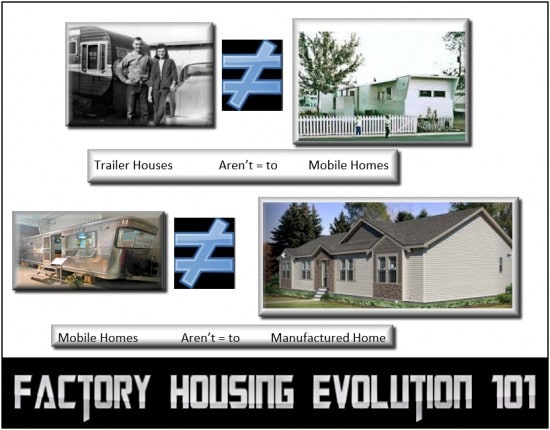
Affordable Housing Focus Group – Comparing Housing Options – Conventional Houses, Condo, Rentals, and Manufactured Homes – Up for Growth, National Association of Realtor, Studies – manufacturedhomelivingnews.com
The Up for Growth National Coalition just published a new report that says the affordable housing crisis is more serious than many realize, and is growing. While their estimates differ, they come to a similar conclusion as the National Association of Realtors (NAR) Lawrence Yun did.
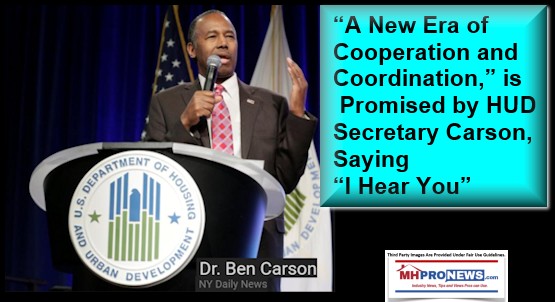
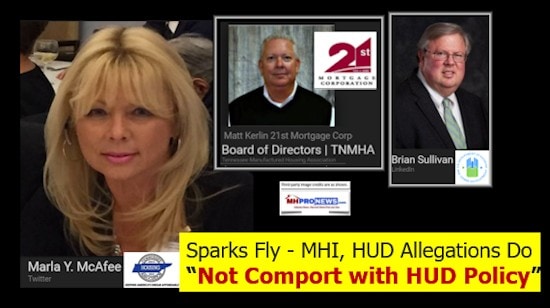
To provide a News Tips and/or Commentary, click this link. Please note if comments are on-or-off the record, thank you.

By L.A. “Tony” Kovach – Masthead commentary, for MHProNews.com.
Tony is the multiple award-winning managing member of LifeStyle Factory Homes, LLC, the parent company to MHProNews, and MHLivingNews.com.
Office 863-213-4090 |Connect on LinkedIn:
http://www.linkedin.com/in/latonykovach
Click here to sign up in 5 seconds for the manufactured home industry’s leading – and still growing – emailed headline news updates.


























